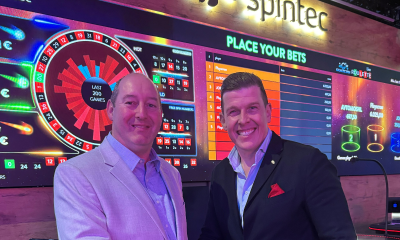eSports
Team Vitality and adidas reveal League of Legends Open Tour roster
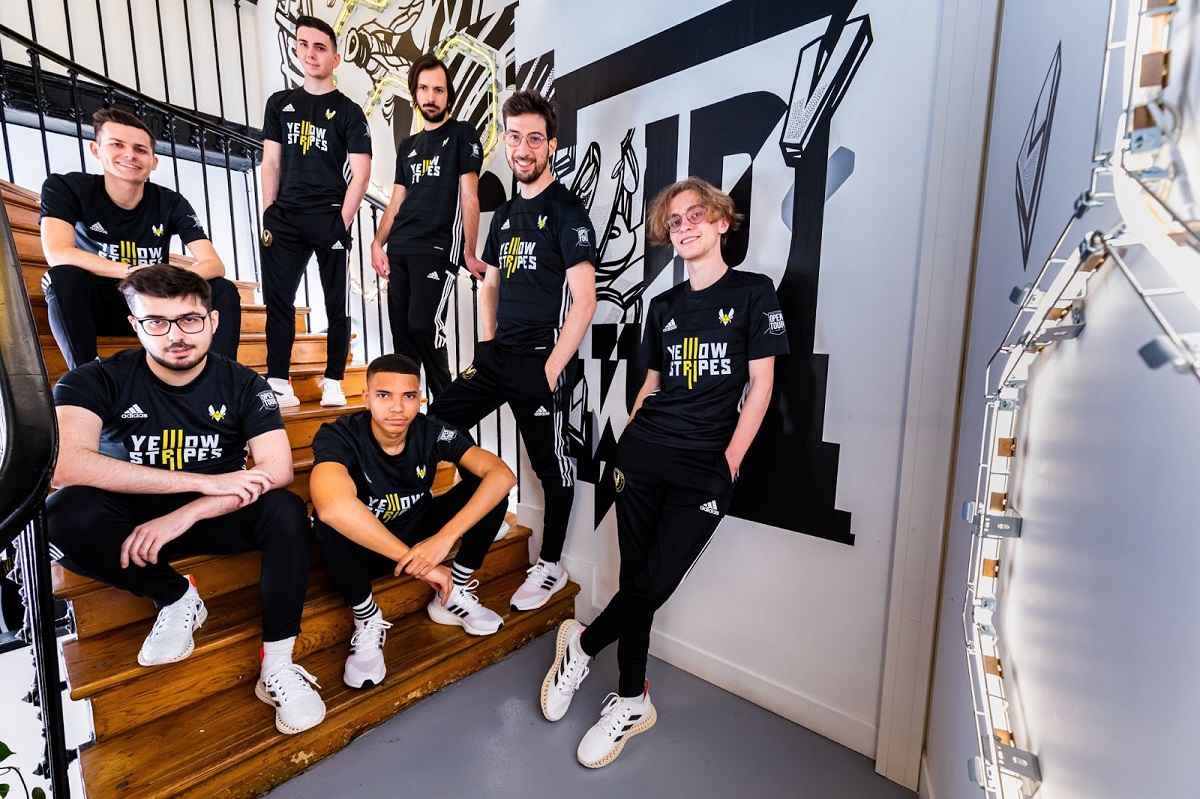
The new semi-pro team ‘Yellow Stripes’ will compete in the League of Legends Open Tour 2022 and benefit from Team Vitality and adidas’ unrivalled performance infrastructure, training alongside the likes of Perkz and Alphari
Team Vitality is pleased to reveal its new semi-pro League of Legends roster for 2022, in partnership with adidas. Yellow Stripes is made up of some of the most promising rising stars in League of Legends who will compete in the 2022 League of Legends Open Tour France. The new team will be powered by the same performance staff and facilities as Team Vitality pro players competing at the highest level to unlock their full potential. As main sponsor of Yellow Stripes for 2022, adidas will provide world class support to the team, including designing a bespoke jersey and a professional athlete, as a mentor to accompany the team throughout the year, give advice from his career and provide all the experience a young team needs to get started.
The Yellow Stripes roster is made up of:
- Matias “matias” Manchin Opheltes, France, 21 years old, AD Carry
- Long-time competitor who has been playing League of Legends since season 5, and took part in the competitive season in the Portuguese League in 2021
- Alexis “Artoria” Diebold, France, 19 years old, Mid Laner
- Played competitively in the France open tour in 2020 before doing a split at MCES Italy this summer and it is his goal to reach Worlds.
- Lorenzo “Linkkey” Giorgiutti, France, 22 years old, Support,
- Played League of Legends competitively since he was 16 and went pro in 2020
- Julian “eaRyz” Wehinger, France, 21 years old, Jungler
- Began competing in League of Legends full-time in 2021 following successful performances in Open Tour France in 2019 and 2020
- John “Sotsy” Sicre, France, 23 years old, Top Laner
- Began competing in League of Legends in 2019 and has since performed well in both the Nordic UKCL and Open Tour Benelux
The team will be coached by Benjamin “Fara” Stoffel and seasoned League of Legends caster and content creator Martin “Krok” Berthelot will act as team manager. The team will have full access to Team Vitality performance facilities including V.Hive, their cutting-edge public esports complex, V.Performance in the Stade de France, and the Berlin coaching house. Yellow Stripes are the third Team Vitality League of Legends roster, joining the newly revealed LEC super team and LFL squad.
Yellow Stripes will make their stage debut on January 29th when the League of Legends Open Tour France begins, the annual semi-pro year-long competition, allowing rising stars to benefit from the environment of top tier pro LAN competition. The Open Tour France gives the next generation of pro players the opportunity to graduate to division 2, and be in with a slight chance to be recruited to the LFL.
“We are proud to invest resources into the amateur scene. This project is a unique opportunity for these young players to learn and grow into what we hope will be a great sporting career in the future. They have challenges ahead of them, but we have every ambition to get them to the final of the Open Tour.” Said Fabien “Neo” Devide, Co-Founder and Esports Director, Team Vitality. “We’re delighted to have a partner in adidas who is not just interested in having their brand represented on the biggest stages in esports, but are committed to helping develop and support the pros of tomorrow”
“True to our belief that through sport we have the power to change lives, we are very proud to participate to this program. adidas supports all athletes who want to make a difference in the way they play, regardless of their sports. Launching ‘Yellow Stripes’ initiative with Team Vitality is rooted in our brand DNA and in the way we want to challenge sports industry codes.” said Sylvain Bouches, VP Director Brand for adidas France.
Yellow Stripes marks the latest collaboration from Team Vitality and adidas in one of the longest standing partnerships in esports. adidas was the first sports kit supplier to invest in the French esports market with Team Vitality in 2017, and together they have created the first-ever esports sneaker, the VIT.01, which sold out worldwide within a week, and created the first sports jersey especially for an esports team. To capture the progress of Yellow Stripes, the brands will collaborate on an eight-episode documentary series following the teams’ progress in the Open Tour.
Powered by WPeMatico
Brazilian Carnival
Esportes da Sorte transforms Carnival 2026 into a nationwide immersive experience
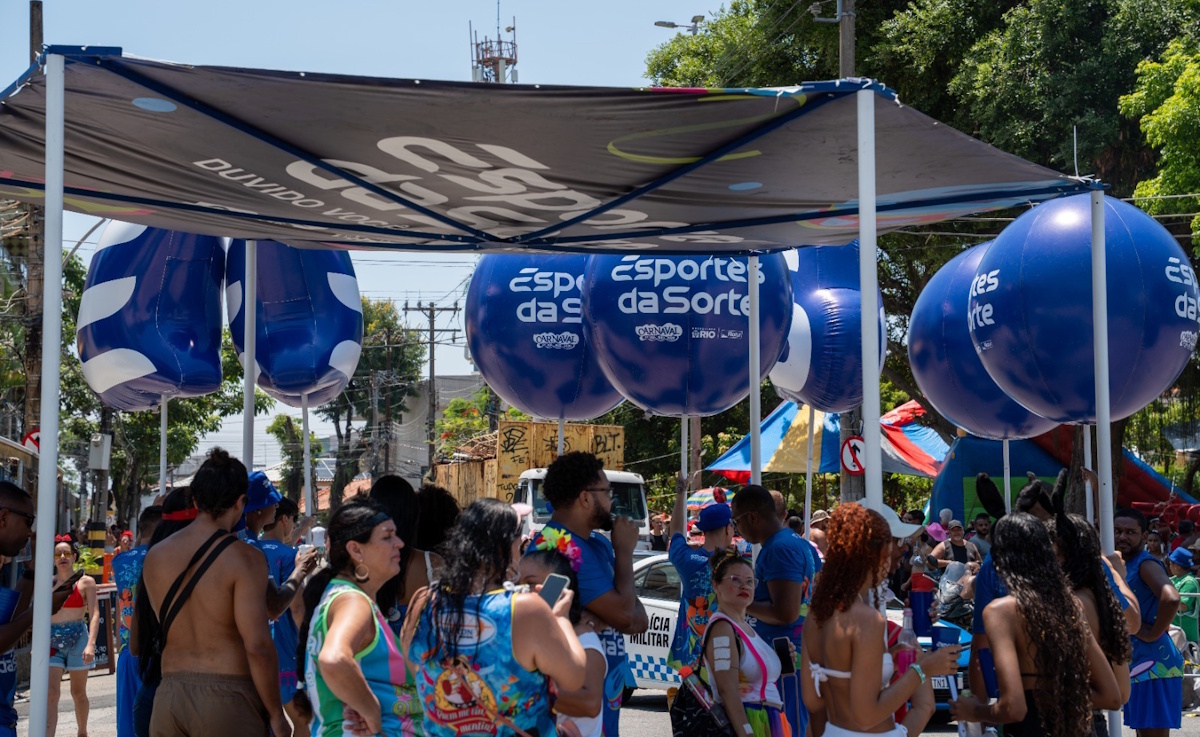
Leading Brazilian iGaming company Esportes da Sorte has transformed Carnival 2026 into a nationwide immersive experience, activating urban art installations, hydration stations and large‑scale attractions across nine cities in Brazil. As part of its expanded cultural engagement strategy, the brand is serving as an official sponsor in key Carnival locations and delivering experiential initiatives designed for revelers in the streets and major public spaces.
Esportes da Sorte’s nationwide platform builds on its history of investing in popular culture and public events, moving beyond traditional branding to create meaningful on‑site activations that enhance the urban environment and respond to the unique character of each city’s Carnival celebrations.
In Rio de Janeiro, the company’s efforts focus on the street Carnival experience with hydration points, cool zones and shaded areas in high‑traffic celebration routes. São Paulo’s megabloc circuits feature water trucks, hydration stations and on‑site urban support.
In Recife Antigo, one of Carnival’s cultural centers, Esportes da Sorte installed a standout Ferris wheel at Marco Zero, offering panoramic views of the festivities and historic landscape. Urban transformations like video mapping on iconic buildings and aerial installations along Rua Marquês de Olinda further blend public space with the Carnival experience.
Other cities such as Olinda and Salvador also feature tailored activations, including sensory design, refreshment tunnels and themed artistic displays that align with local traditions and festival dynamics.
In addition to physical structures, the initiative includes a robust communications strategy, sensory activations, public well‑being supports and content campaigns that amplify the carnival‑street experience across digital and traditional media.
According to Germana Casal, Production Coordinator at the Esportes Gaming Brasil Group, the goal is to “be present in a meaningful way at the country’s biggest popular celebration,” respecting each city’s identity and delivering initiatives that improve the Carnival experience for participants.
Esportes da Sorte’s Carnival 2026 project builds on the brand’s presence at more than 100 Carnival parties and street blocos in 2025, reinforcing its leadership role in Brazil’s largest cultural event and deepening its connection with urban celebration culture nationwide.
The post Esportes da Sorte transforms Carnival 2026 into a nationwide immersive experience appeared first on Eastern European Gaming | Global iGaming & Tech Intelligence Hub.
chess esports
Team Vitality announces E.Leclerc as new Main Partner
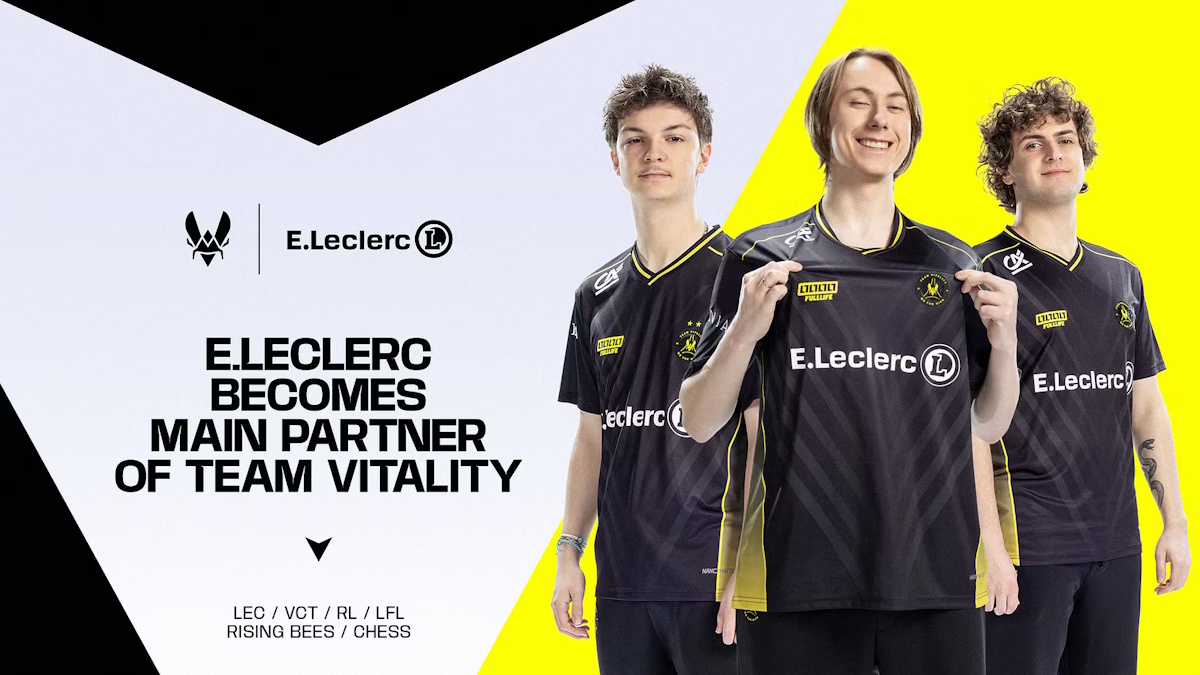
Team Vitality, one of France’s leading esports organizations, has announced a strategic new partnership with French retail giant E.Leclerc, naming the supermarket chain as the club’s Main Partner for 2026.
Under the agreement, E.Leclerc’s logo will feature prominently on Team Vitality’s international team jerseys, including rosters for League of Legends (LEC and LFL), Valorant (VCT EMEA), Rocket League, Rising Bees and Chess.
Shared Values and Fan Initiatives
The partnership aims to promote accessibility, wellness, and nutrition within the esports community, while bringing gaming culture into E.Leclerc retail spaces through immersive experiences, tournaments and activations designed to engage fans across France.
Team Vitality’s holistic wellbeing program, KARE, which supports performance, nutrition and mental health, aligns closely with E.Leclerc’s focus on responsible lifestyle initiatives. Together, they plan to champion inclusivity, provide unique gaming opportunities, and celebrate esports culture in both digital and physical environments.
With a global audience exceeding 10 million followers, Team Vitality’s influence in competitive gaming makes this partnership a landmark moment for both brands. E.Leclerc’s commitment to youth engagement and cultural connection positions the retailer as a significant non‑endemic supporter of the growing esports ecosystem.
Nicolas Maurer, CEO and Co‑Founder of Team Vitality, described the alliance as a historic milestone that will broaden esports’ reach across everyday life in France and reinforce its cultural legitimacy.
The post Team Vitality announces E.Leclerc as new Main Partner appeared first on Eastern European Gaming | Global iGaming & Tech Intelligence Hub.
AI chatbot esports
G2 Esports and Theta Labs Launch AI Agent Sami
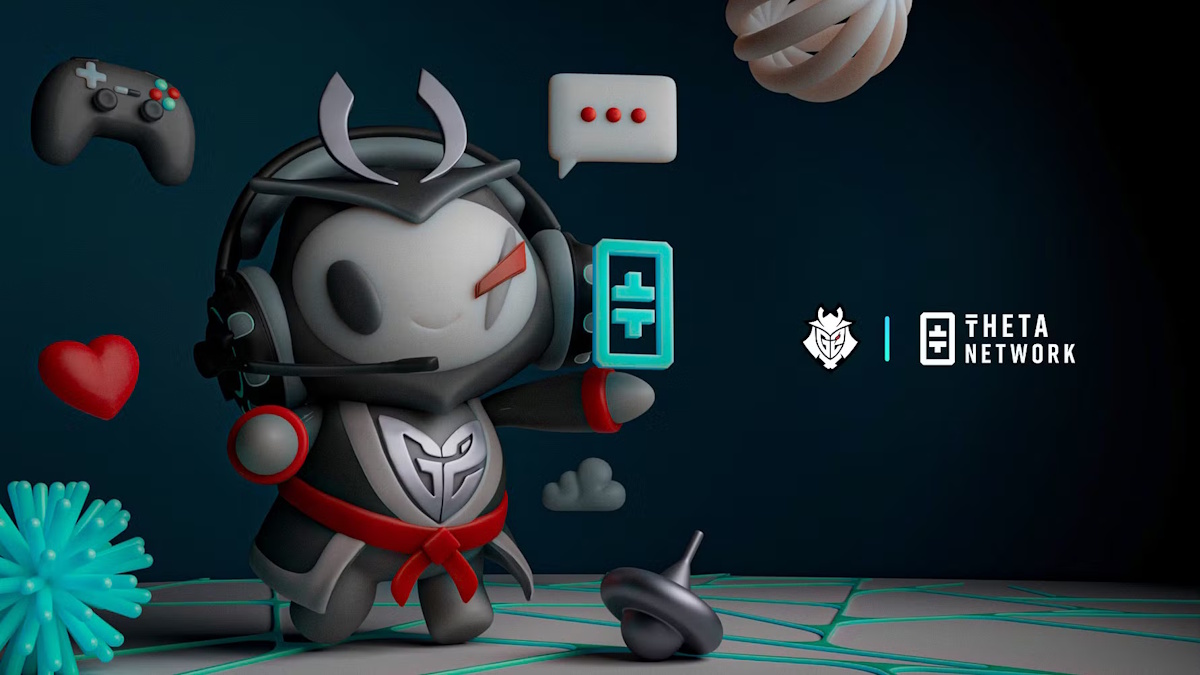
G2 Esports has partnered with Theta Labs to launch “Sami,” a next-generation AI agent designed to enhance fan engagement across multiple competitive esports titles.
The AI-powered assistant will provide G2’s global fanbase with instant access to match schedules, player stats, team rosters, tournament standings, and real-time competitive updates. Sami supports major titles including League of Legends, Counter-Strike 2, VALORANT, Tom Clancy’s Rainbow Six Siege, and Call of Duty.
Accessible via the official G2 website and Discord starting February 17, Sami is built to deliver accurate, always-on responses to fan queries in natural language. From tournament updates to player performance metrics and G2-specific trivia, the AI agent reflects the organization’s unique brand voice and competitive culture.
AI-Powered Fan Engagement at Scale
Sami is trained and deployed using Theta EdgeCloud’s hybrid cloud-edge infrastructure, which integrates over 30,000 distributed edge nodes with cloud services from Google Cloud and Amazon Web Services. The system delivers approximately 80 PetaFLOPS of GPU compute power, enabling real-time processing and analysis at significantly reduced costs compared to traditional centralized cloud platforms.
The AI infrastructure dynamically assigns workloads to high-performance GPUs, including NVIDIA A100 and H100 cloud GPUs, as well as RTX 3090 and 4090 desktop GPUs, optimizing performance and cost efficiency. This decentralized architecture allows G2 to scale fan engagement globally while maintaining low latency and high reliability.
Strengthening Esports AI Innovation
Theta Labs has rapidly expanded its presence in the esports industry, powering AI-driven fan experiences for organizations such as Cloud9, FlyQuest, Evil Geniuses, NRG, Gen.G, Dignitas, 100 Thieves, Method, and Team Heretics.
According to Mitch Liu, CEO of Theta Labs, esports fans increasingly demand instant access to team data and competitive updates. AI agents like Sami enable organizations to provide 24/7 automated engagement while maintaining a unique community personality.
Sabrina Ratih, COO of G2 Esports, emphasized that Sami is more than a standard chatbot. Built to reflect G2’s playful and competitive tone, the AI assistant combines advanced machine learning with brand-driven communication to deliver both entertainment and functionality.
The Future of AI in Esports
The launch of Sami positions G2 Esports at the forefront of AI-driven fan engagement in competitive gaming. By leveraging decentralized GPU infrastructure and blockchain-powered cloud computing, the partnership with Theta Labs signals a broader industry shift toward scalable, cost-efficient AI solutions for esports organizations.
As AI integration becomes a competitive differentiator in esports, solutions like Sami are expected to redefine how teams interact with their global communities in real time.
The post G2 Esports and Theta Labs Launch AI Agent Sami appeared first on Eastern European Gaming | Global iGaming & Tech Intelligence Hub.
-

 Amusnet5 days ago
Amusnet5 days agoWeek 7/2026 slot games releases
-

 Aphrodite’s Kiss5 days ago
Aphrodite’s Kiss5 days agoLove on the Reels: Slotland Introduces “Aphrodite’s Kiss”
-

 Denmark6 days ago
Denmark6 days agoRoyalCasino Partners with ScatterKings for Company’s Danish Launch
-

 Baltics6 days ago
Baltics6 days agoEstonia to Reinstate 5.5% Online Gambling Tax From March 1
-

 Brino Games5 days ago
Brino Games5 days agoQTech Games integrates more creative content from Brino Games
-

 Booming Games6 days ago
Booming Games6 days agoTreasure Hunt Revival — Booming Games Launches Gold Gold Gold Hold and Win
-

 ELA Games6 days ago
ELA Games6 days agoELA Games Unveils Tea Party of Fortune — A Magical Multiplier Experience
-

 Bet Rite6 days ago
Bet Rite6 days agoSpintec Expands into Canada with Bet Rite


















